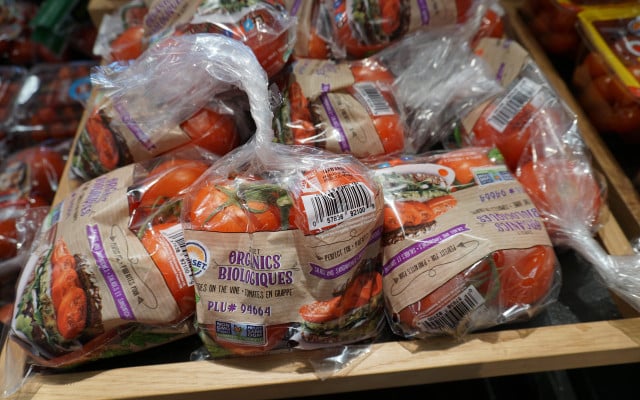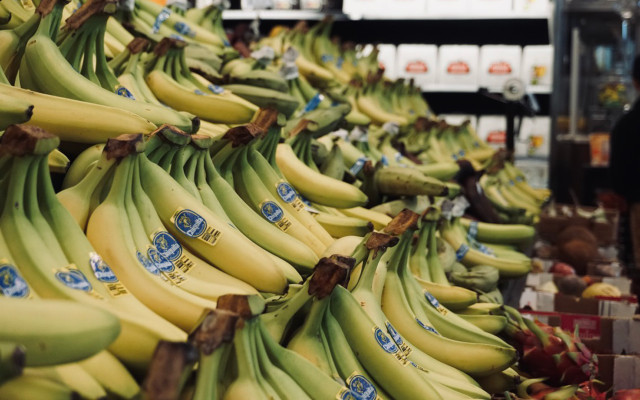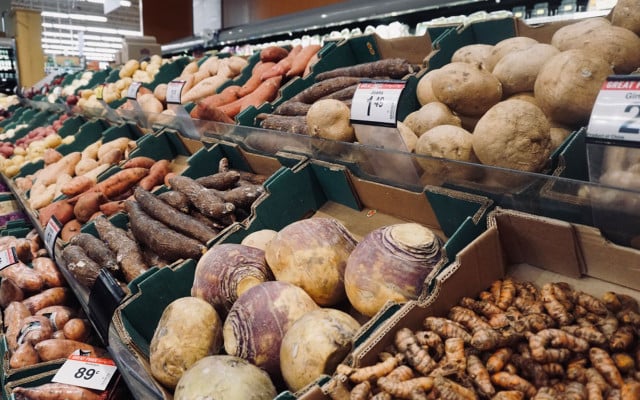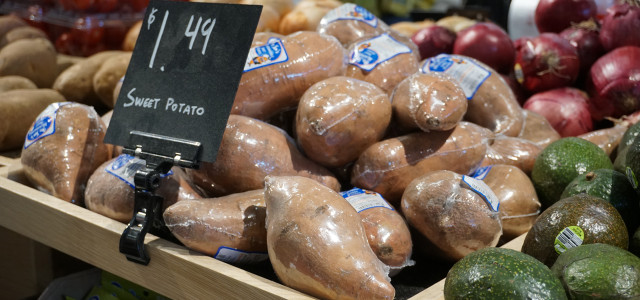Plastic-free shopping isn’t hard. Everybody can contribute to waste reduction by cutting wrapped-up groceries from their shopping list. In this article, we’ll show you how with three easy tips.
Think about how often you’ve experienced the following: You’ve just returned home from the supermarket, and unpacking and putting away your groceries causes your garbage and recycling bins to overflow. It is possible, however, to consciously contribute to waste reduction. Plastic-free shopping is easier than you think — we’ll show you how to do it.

1. Chose Plastic-free Products in the First Place
Potatoes in plastic wrap? A tiny serving of fruit in a heavy plastic container? A salad to go inside a mountain of plastic? Supermarkets often use inflated packaging for small items or sell products wrapped in unnecessary plastic packaging.
Take the first step towards overall waste reduction by avoiding such packaged items completely. Choose plastic-free groceries instead. It’s often an easy way to save money, as items such as fruit or salads packaged to go are much more expensive than the same groceries without packaging.
2. Bring Your Own Bags and Containers
It’s time to think beyond the cloth shopping bags you should always have on hand. Working toward a packaging- and plastic-free shopping experience also means avoiding thin plastic bags in the veggie section. So bring along smaller bags used for bagging fresh fruits and vegetables.
We tested using our own cloth bags in various supermarkets, organic grocery stores, and discount chains to see how cashiers would react. In short, no one had a problem with reusable cloth bags for bagging fruits and vegetables. The most important step is remembering to bring them along in the first place. The same tip also worked at bakery counters — it’s easy to prevent another one-use paper or plastic bag from ending up in the landfill.
Many stores will allow you to fill your own containers with deli items, from cheeses and sliced meats to hors d’oeuvres and hot items. Ask the deli staff at your local store for assistance.



In short: Waste reduction is easy if you think ahead. Make a habit of bringing these plastic packaging alternatives to the grocery store and eliminate these plastic products from your daily routine for good — it’s for everyone’s good.
If your grocer doesn’t already offer plastic bag alternatives, these may be of interest in kick-starting your plastic-free pursuits:
- Reusable String Bags (available at Amazon**)
- Cotton bags (available at Amazon**)
- Grocery Bags from recycled PET (available at Amazon**)
3. Buy in Stores with Plastic-free Bulk Bins



The easiest way to avoid packaging is to go to stores that sell as many items as possible in bulk bins. Around the world, a movement of bulk-only, packaging-free stores is growing; but even your local coop and farmers’ market are sources of unpackaged products. You can buy just the amount you need, filling your own reusable containers, thereby avoiding unnecessary waste. Everything from noodles to rice, lentils to coffee beans, and sweets to soaps are unpackaged.
But what about beverages? There’s no need to buy bottled water — tap water is regularly tested and scientifically proven to be safer and better quality. Just make sure to filter it before you drink it. Invest in a reusable water bottle or two, or refill and reuse any empty bottles you already have around the house.
Plastic-free shopping not only assists in fighting unnecessary landfill pileups, but it also combats excess plastic packaging in your waste and recycling bins. Ultimately, taking the initiative and going plastic-free makes life simpler.
Read up on more ways to break your every day down to the basics in our guide on minimalist living.
Read more:
- Plastic in the Ocean: What Can I Do?
- 4 Immediate Small Steps toward Increased Sustainability
- Minimalism: 3 Methods for Beginners
Do you like this post?






